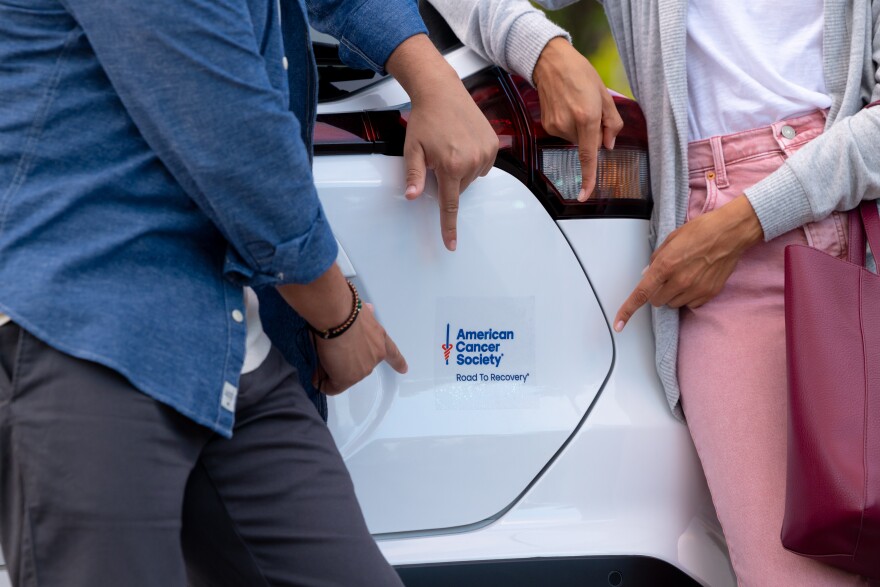Gary Williams lost his wife to cancer about 13 years ago.
He wanted to find a way to honor her legacy. So, he started driving for the American Cancer Society’s Road to Recovery program.
“My wife was the person who was really in favor of [helping] those people that needed help,” Williams said. “If she's up there watching, I'm sure she's very appreciative of what I'm doing in her honor.”
Road to Recovery offers free rides to and from appointments for individuals with cancer in the continental United States. The American Cancer Society has 27 drivers in its Northeast Pennsylvania region, including Lackawanna, Luzerne, Monroe, Pike, Sullivan, Susquehanna, Wayne and Wyoming counties.
The American Cancer Society says of the program, “Not having a ride shouldn’t stand between you and lifesaving treatment.”
Williams typically drives for Road to Recovery two to four times a week. He lives in Luzerne County and mostly drives people to Geisinger’s Henry Cancer Center in Wilkes-Barre, although he’s made trips to Scranton, Danville and even Philadelphia.
“It's very rewarding,” he said. “The people you meet, the people that you can see, are so much in need of getting to their appointments and probably have no other way of getting there. I really enjoyed actually making friends while I'm doing this.”
Making connections
Williams has formed relationships with some of his clients, like Pete Polliard.
Polliard, a Luzerne County resident, was diagnosed with an aggressive form of brain cancer this past November.
He does not drive and typically gets around using public transit. However, the grueling radiation treatments he was getting almost every day for seven weeks after diagnosis drained him. That made it difficult to take the bus home.

He credits Road to Recovery with saving his life after the shocking diagnosis.
“I have nothing but good things to say about the program that literally saved my life, or at least prolonged it,” Polliard said.
Like Polliard, several of Williams’s clients did not drive even before their diagnoses.
"Typically, the clients that I've been driving are elderly, mostly low income,” Williams said.
Many cannot afford alternate means of transportation.
“I don't have a car or means for an Uber,” Polliard said. “I not only was numb from my prognosis, but I didn't know where to turn. I have very limited means. I have a particularly aggressive form of cancer that wasn't going to wait for me to have everything be convenient, or for my head to get wrapped around the idea that I was ill.”
Connecting with drivers like Williams helps Polliard maintain a positive attitude through his treatment.
“The treatments are very vigorous and take quite a lot out of you, and it was nice to have a friendly, smiling face and somebody with some cheerful words,” Polliard said.
Need increasing, volunteers decreasing
Research from the Journal of the National Cancer Institute found that health-related transportation insecurity is common. For individuals with cancer, a lack of dependable transportation can lead to worse outcomes and preventable deaths.
“When it comes to cancer care, your ability to stick to your recommended treatment regimen is extremely important,” said Kelly Parker, the American Cancer Society’s associate director for access to care and delivery solutions overseeing Eastern Pennsylvania. “If you miss an appointment due to lack of transportation, there's a whole bunch of negative outcomes that can come out of that, including poor health outcomes and poor treatment outcomes for the patient.”
Road to Recovery helps them stick to intense treatment plans.

“They can keep along the path of healing without having to worry about transportation or paying for transportation and just focus on getting well,” Parker said.
The program paused during the COVID-19 pandemic.
According to Parker, Road to Recovery lost nearly 60% of its drivers nationwide because of the pandemic. In NEPA, the amount of volunteers decreased as well.
Parker said last year, Road to Recovery fulfilled 622 ride requests out of 1,094 in Luzerne County.
“We could definitely use some more hands on deck, just to help the amount of people that are requesting rides from us get to their appointments,” she said.
Road to Recovery cannot fulfill every ride request.
“At times there are situations where we just can't handle the folks that want rides,” Williams said.
Nearly all of Polliard’s ride requests have been fulfilled since November. He encourages people to volunteer so more people like him can benefit from their services.
“You could take two hours a week and drive someone for a cancer treatment, help save a life,” he said.






